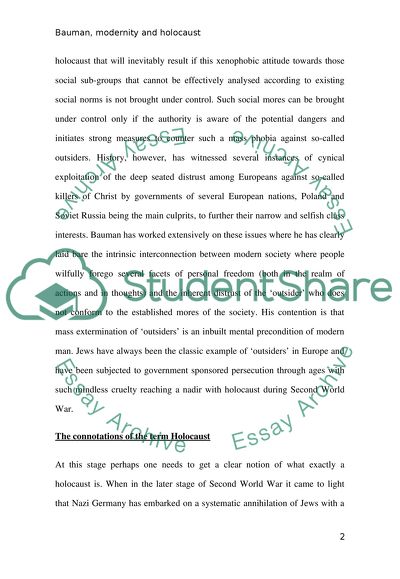Cite this document
(Bauman, Modernity, and Holocaust Report Example | Topics and Well Written Essays - 1250 words, n.d.)
Bauman, Modernity, and Holocaust Report Example | Topics and Well Written Essays - 1250 words. https://studentshare.org/philosophy/1554904-consider-baumans-idea-that-central-features-of-modernity-underpinned-the-possibility-and-actuality-of-the-holocaust
Bauman, Modernity, and Holocaust Report Example | Topics and Well Written Essays - 1250 words. https://studentshare.org/philosophy/1554904-consider-baumans-idea-that-central-features-of-modernity-underpinned-the-possibility-and-actuality-of-the-holocaust
(Bauman, Modernity, and Holocaust Report Example | Topics and Well Written Essays - 1250 Words)
Bauman, Modernity, and Holocaust Report Example | Topics and Well Written Essays - 1250 Words. https://studentshare.org/philosophy/1554904-consider-baumans-idea-that-central-features-of-modernity-underpinned-the-possibility-and-actuality-of-the-holocaust.
Bauman, Modernity, and Holocaust Report Example | Topics and Well Written Essays - 1250 Words. https://studentshare.org/philosophy/1554904-consider-baumans-idea-that-central-features-of-modernity-underpinned-the-possibility-and-actuality-of-the-holocaust.
“Bauman, Modernity, and Holocaust Report Example | Topics and Well Written Essays - 1250 Words”. https://studentshare.org/philosophy/1554904-consider-baumans-idea-that-central-features-of-modernity-underpinned-the-possibility-and-actuality-of-the-holocaust.


